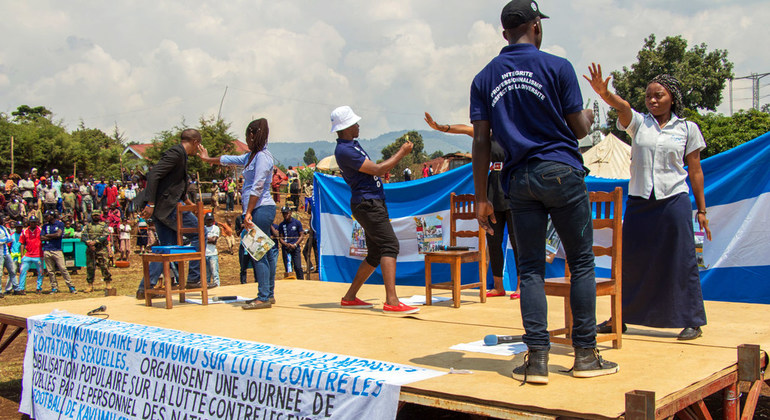
Spokesperson Stéphane Dujarric told a regular press briefing in New York, that the report reflects how UN teams have work to adapt their practices in every country to continue lifesaving efforts “without disruption”.
He also highlighted that the number of UN entities that submitted action plans to prevent SEA last year, had more than quadrupled from 50 in 2019 to 207, which he maintained showed “an increased commitment within the UN system to address this issue”.
“We also increased our work across the system and with implementing partners to ensure they have reporting mechanisms and address allegations that are in line with UN standards”, Mr. Dujarric added.
Despite the pandemic, he said, “we continued to improve and expand our efforts to reach victims and provide them with assistance”.
Victims’ rights, front and centre
UN Victims’ Rights Advocate Jane Connors zeroed in on prioritizing the rights and dignity of victims by institutionalizing them systemwide.
And while this is “gaining traction”, she flagged that “we are constantly looking for ways to do more, particularly as the needs are great”.
Ms. Connors pointed to a pilot programme, mapping services and assistance for victims in 13 countries with a differing UN presence, noting that partners generally supported those affected through programmes to combat gender-based violence.
She noted however, that these programmes vary in quality and availability and that more must be done “to respond to the specific needs of victims of sexual exploitation and abuse”.
Child support
The UN advocate has continued to focus on resolving paternity/child support claims while exploring ways to help women access legal assistance, including through pro bono lawyers and national human rights institutions.
“These are complex from a legal point of view, often involving several jurisdictions, and require close cooperation with Member States”, she said.
Her office is also working on developing an effective way of integrating feedback from victims on its work, as “responses crafted without their input are unlikely to be successful”.
Stepping up support
Meanwhile, Christine Besong, Field Victims’ Rights Advocate in the Democratic Republic of the Congo (DRC), explained the areas of support her office provides to victims, including, medical, legal and psychosocial assistance along with security and shelter.
It also provides livelihood support through projects as well as reporting and referral pathways, she told journalists via videoconference from DRC.
“In my conversations with victims, I will often hear that they can build back their lives and restore their dignity if they were empowered to sustain themselves and take care of their children”, she said.
Trust fund support
The DRC victim’s rights advocate elaborated on a UN Trust Fund that supports SEA victims through a variety of projects.
In 2018, three projects in the country helped more than 400 beneficiaries, including children, she explained, adding that similar ones are currently underway in six other locations.
“We have seen victims who have turned around their lives…some of them are now able to take care of their children and become leaders in the communities”, Ms. Besong said.
“They tell us that now they are happy and have become mentors for others”, she said proudly.
Doing the job
Lockdowns, curfews and social distancing have affected the way Ms. Besong’s office has interacted with SEA victims.
“Our premises were no longer accessible to them neither could we go to where they are, so we had to be creative…to reach out to them to communicate with then, to find our how they were doing and what their immediate needs were”, she said.
“That is our job. And we continue doing it”, she attested.